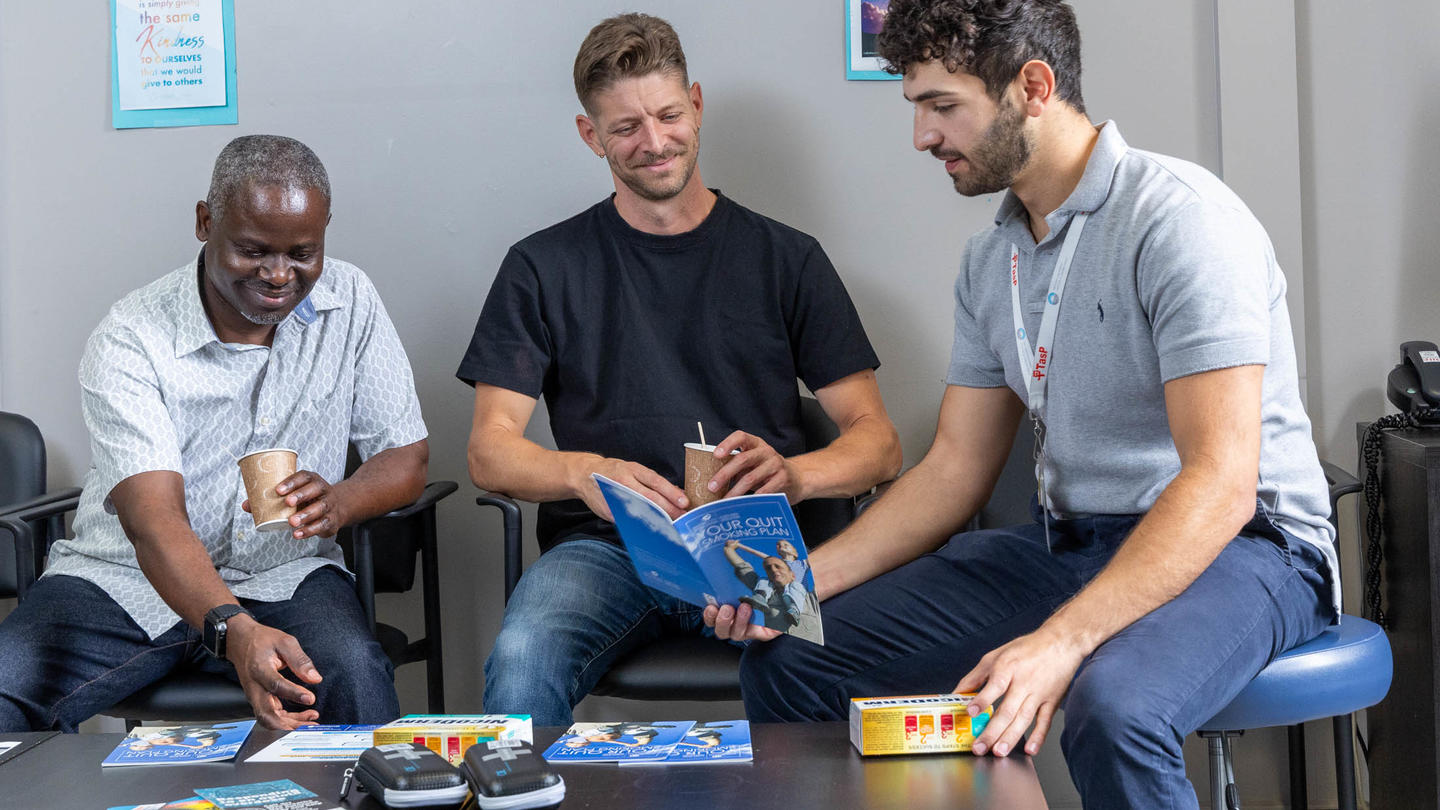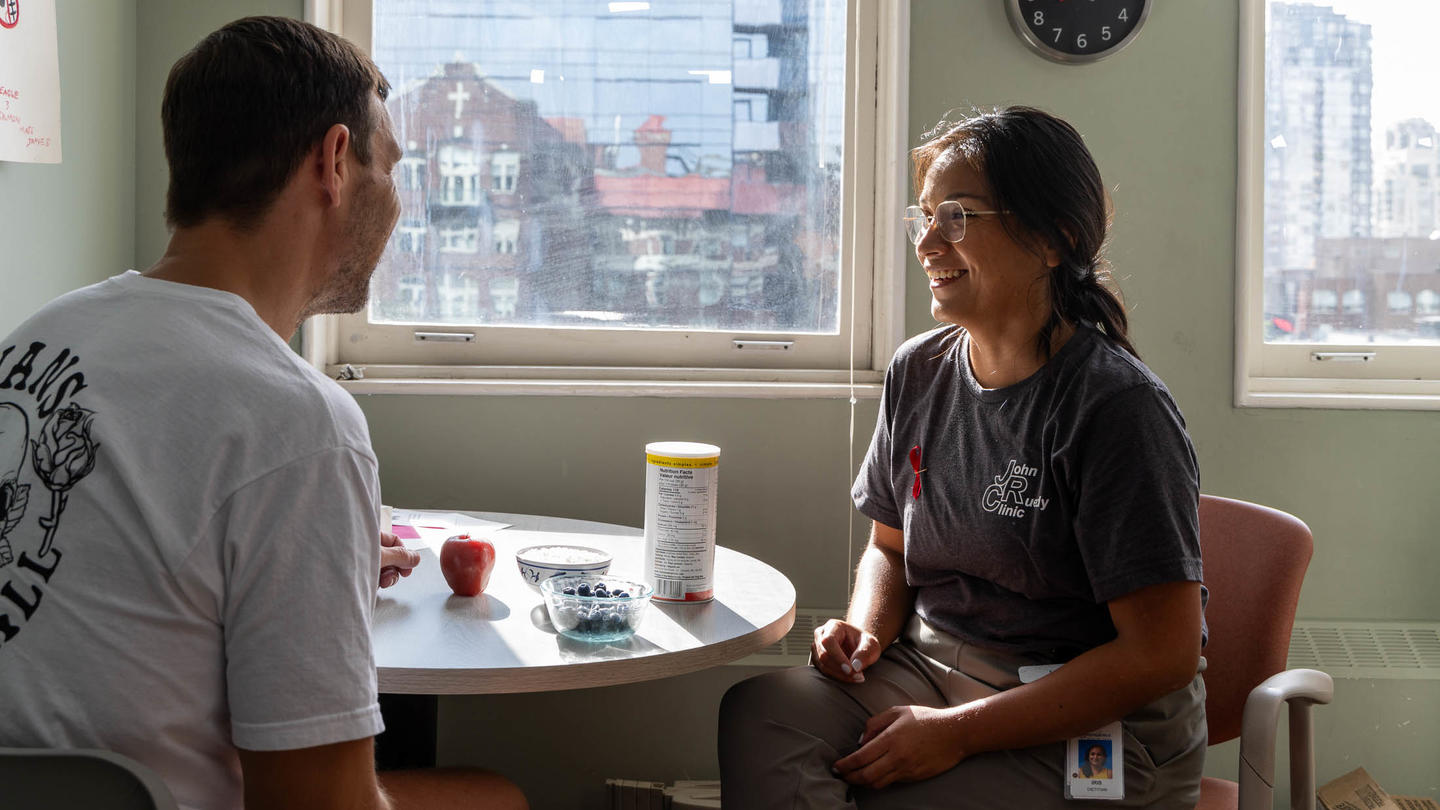Human immunodeficiency virus & acquired immunodeficiency syndrome (HIV/AIDS)
Providence Health Care's services and resources for adults living with Human Immunodeficiency Virus (HIV).
Overview
Human Immunodeficiency Virus (HIV) is a virus that attacks your immune system. Untreated HIV can progress into a serious disease called Acquired Immunodeficiency Syndrome (AIDS).
HIV is passed through blood and body fluids. This includes vaginal fluids, semen, pre-ejaculate, anal fluids and breast milk.
HIV is a chronic illness that can be treated with antiretroviral medications. People with HIV can now live long, healthy lives and are less likely to pass the virus to others.
HIV care and treatment is free in British Columbia. Learn more by visiting the SmartSexResource— provided by the BC Centre for Disease Control.
Prevention
There are many things you can do to prevent getting HIV, including:
- Practice safe sex, such as using condoms.
- Get tested regularly.
- Practice safe injection drug use. This includes using clean needles and injecting equipment.
- Take oral medicines called PrEP and PEP if you are at high risk of getting HIV. PreP and PEP are HIV antiretroviral medicines that are free in B.C.

Diagnosis & testing
Catching and treating HIV early can slow down the virus and help you stay healthy. It can also prevent the spread to other people.
You should always know your HIV status. If you have had sex or take drugs with others, you are at risk of HIV. Symptoms of HIV are hard to tell apart from other viral infections. Many people also have mild symptoms or do not show any symptoms.
HIV testing in B.C. is free and convenient. Everyone between 18 and 70 years should get a test at least every five years. You should get tested more frequently if you are at high risk of getting HIV or you become pregnant.
Routine HIV testing is also done with other bloodwork when you are admitted to a hospital in the Vancouver Coastal Health region. This includes all Providence hospitals: St. Paul’s Hospital, Mount Saint Joseph Hospital and Holy Family Hospital. All pregnant women in B.C. also receive routine HIV testing.
You and your partners can access an HIV test at the following locations:
- Sexual Health Clinics
- Primary Care Clinics
- Confidential online STI testing is available through GetCheckedOnline at participating LifeLabs.
- Rapid self-testing with I’m Ready to Know. (You will need a blood test.)
Learn more about HIV Testing.
Treatment & management
HIV is a chronic infection that is manageable with daily medication. Early treatment is key.
Clinics that treat HIV
PHC offers integrated, specialist services for those living with HIV/AIDS.
You can access these services at:
- HIV outpatient clinic in the Division of Infectious Disease at St. Paul’s Hospital.
- John Ruedy Clinic at St. Paul’s Hospital is for those who need more comprehensive care and do not have a primary health care provider. The social work team will connect you to other community health services if the clinic is not a great fit.
Support services
PHC offers integrated, specialist services for those living with HIV/AIDS.

Support for Indigenous Peoples
The Indigenous Wellness Liaison Team is here to support your health journey. Team members offer cultural support and healthcare advocacy. Learn more below or call them at 604-682-2344,62937 or email IWL@providencehealth.bc.ca.
Education & resources
Patient education
Patient-centred help, resources and education about HIV/AIDS come from many sources. Some of them listed here are supplied by Providence Health Care, but other useful resources about HIV/AIDS are available from the community and from online supports.
Useful resources
- Smart Sex Resource (BC Centre for Disease Control)
- BC Centre for Excellence in HIV/AIDS
- Vancouver Coastal Health HIV information
- BC Centre for Disease Control HIV/AIDS information
- Ribbon Community
- CATIE — Canada’s source for HIV and hepatitis C information
- Pacific AIDS Network (PAN)
- YouthCo — Youth leading the HIV and hep C movement
- TheBody: The HIV/AIDS resource
Patient communities
Many adults living with HIV/AIDS find it helpful to join online communities of other people with the same or similar condition. Providence does not and cannot endorse these communities. Rather, we are providing these links as resources of note for you to consider.
Clinical trials & research
St. Paul’s Hospital is the headquarters of two facilities that undertake world-leading research into HIV/AIDS.
Advances in HIV/AIDS treatments are all thanks to medical research. While participating in research is a decision you should make for yourself in consultation with your care team, there is much activity in this area so please ask us about our research programs if you’re interested.
By taking part in research, you can help us all learn more about HIV/AIDS and find better ways to help people like you live and thrive with the condition. While you cannot assume benefit to yourself, your participation can make a difference in improving care for future patients.
The following clinical trials are currently enrolling volunteers. Please ask your care team for more information or contact the research team listed on each study or trial. For other information about research at Providence Health Care, please visit Providence Research.
News & stories
Last reviewed: March 25, 2025


